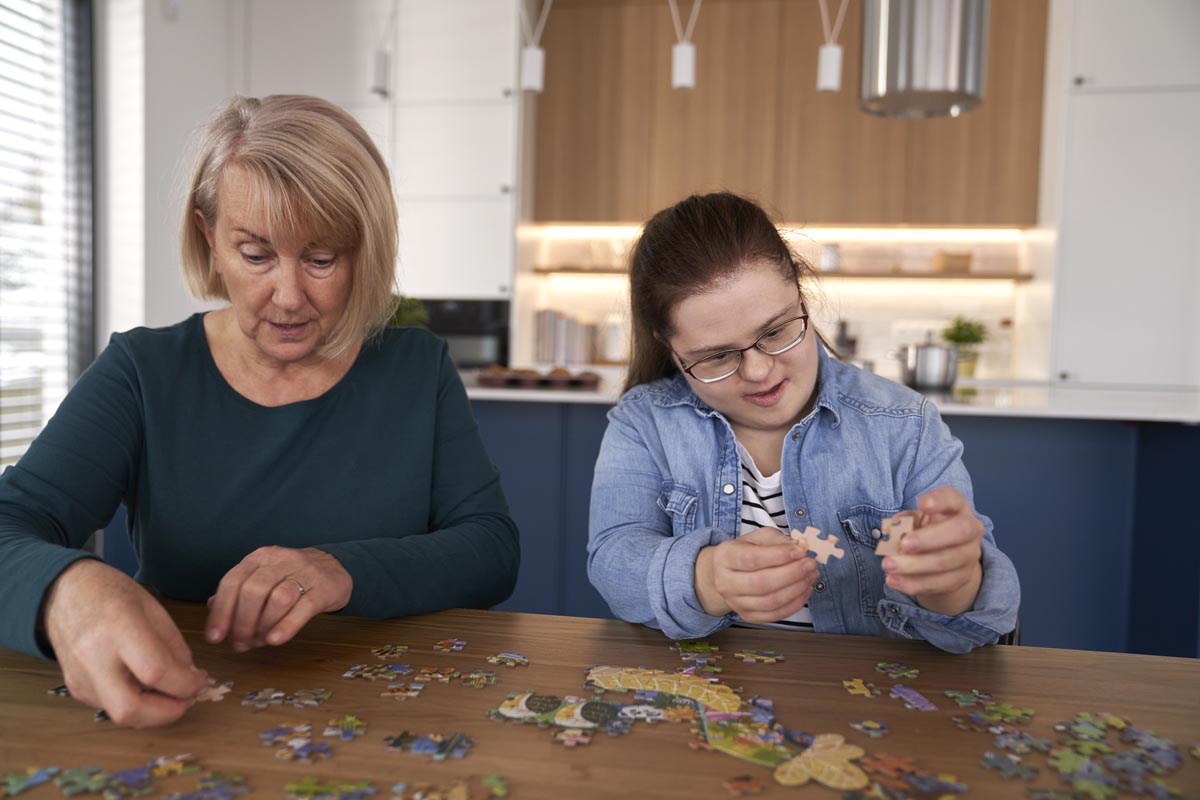Families seldom prepare for disability. It arrives throughout a routine pediatric check-up that becomes a specialist referral, or after a late-night fall that transforms gait and speech, or as a slow-moving creep of symptoms that ultimately requires a name. In every version, life reroutes. The map updates item by item: brand-new treatments, brand-new routines, new campaigning for muscular tissues. And somewhere along the road, a hand shows up, typically classified just: Disability Services and Support Organization. When the assistance is great, it changes stress and anxiety into strategy and isolation into area. When it falls short, families waste time they do not have.
Over 20 years of functioning alongside family members and company, I have seen what works. The most effective organizations couple functional logistics with human understanding. They talk policy and ordinary language. They equate medical diagnoses right into everyday rhythms that can be sustained. They honor freedom without neglecting threat. Most importantly, they assist families build capacity, not dependency.
What "assistance" really looks like on a Tuesday afternoon
Support rarely gets here as a single program. It appears in the information: a treatment coordinator calling back prior to pick-up time, a speech therapist customizing a session since a youngster had a rough early morning, a benefits professional catching a missed Medicaid box that would have delayed insurance coverage for months. The Tuesday afternoon test procedures whether a service integrates into reality or includes friction.
I think of a daddy I satisfied in San Bernardino, a distribution chauffeur attempting to maintain changes while navigating his boy's new autism medical diagnosis. An advocate from a regional Disability Services and Support Organization sat with him at the kitchen table to map his week. They relocated speech therapy from lunchtime to late afternoon so he would not lose jobs, arranged telehealth check outs for work-related therapy on alternate weeks, and taught him to document meltdowns without transforming home into a center. 3 small modifications reduced his missed job hours by half within a month. Absolutely nothing advanced, simply coordination and respect for how family members eat, sleep, and make a living.
The several duties under one roof
The term "support company" covers a broad period: county-based agencies, nonprofits connected to health centers, faith-linked community centers, and nationwide connect with neighborhood phases. While frameworks differ, solid groups cover these core functions.
Care control mixes navigation and triage. Planners stitch together assessments, authorizations, and routines, spotting conflicts prior to they derail treatment. They know which facility can see a nine-year-old before school, which oral workplace can manage sensory sensitivity, when to rise an allure, and when to avoid and try one more path entirely.
Clinical services and therapies ground development forthcoming while staying adaptable. Great physical therapists show parents just how to transform laundry folding into bilateral sychronisation technique. Effective speech pathologists target practical language initially, not simply check ratings. Psychologists that recognize family members systems assist parents comprehend actions as communication, not defiance.
Benefits and legal assistance maintain the safety net intact. Organizations with seasoned advantages navigators help households protected Medicaid waivers, SSI, SNAP, and state-level supports without setting off churn. Lawful partners handle special education and learning disputes, guardianship alternatives, and housing defenses. A two-page letter referencing the right statute can avoid a year of shed services.
Peer support and mentorship change isolation with tactically beneficial knowledge. A moms and dad that has actually already endured six IEPs knows where the meeting often tends to thwart and just how to mount demands with data. Peer advisors usually complete what specialists can not, partially due to the fact that families trust fund stories more than pamphlets.
Employment and independent living solutions widen an individual's future. Work coaches who understand the regional labor market can line up toughness with duties that have growth potential, not simply set-aside jobs. Independent living specialists develop the skills behind the scenes: budgeting without pity, bus courses that fit a rest cycle, dish preparation that respects sensory profiles.
Assistive modern technology and access turn shut doors into open ones. The very best teams attempt the most basic thing initially. A tablet with led accessibility might be much more impactful than a pricey committed tool. A $70 lever door take care of can save hours of caregiver time and give self-respect that no kind can record. Technology prospers when training and support accompany the gadget, not when the gadget sits boxed on a shelf.
How systems form the journey
Families come across solutions through various access factors. Qualification paths matter due to the fact that they slow or speed development, and due to the fact that the incorrect door can close the appropriate one. Pediatric systems have a tendency to be much better staffed, however they frequently "age out" at 18 or 21, leaving a cliff. Adult services can be patchier yet more adaptable. Rural areas provide fewer options however in some cases extra willing improvisation. Urban areas might have depth with long waits.
Insurance policies, state Medicaid waivers, and college district policies do not respect family timetables or persistence. Organizations that thrive build internal know-how around these systems. They track processing times by region, keep shadow checklists of facilities that approve complicated situations, and know which companies recognize job training hours. They practice persistence without shedding a good reputation, which is its very own craft.
Realistic wins and sincere limits
I have actually discovered to determine progress in spans of three and twelve months, not one week. Households can anticipate stable gains when solutions are coordinated and well supplied, but the course zigzags. Kids plateau, teenagers promote freedom in fits and starts, grownups struck transportation spaces that stall job retention. Organizations that guarantee direct renovation set everybody up for frustration.

There are also tough walls: labor force scarcities that extend therapy periods, real estate scarcities that force lengthy commutes, supply chain hold-ups for mobility devices and seating systems that can last 3 to 6 months. When the system can not flex, the most effective teams redirect energy towards what can alter. They do not conceal the limits. They help family members develop a Plan B and a Strategy C.
The meeting table where futures get negotiated
The Individualized Education and learning Program meeting, the change strategy at 16, the adult solutions consumption at 21, the return-to-work meeting after a stroke, these areas form years. Assistance companies gain their maintain in these areas. Preparation issues greater than eloquence. A one-page recap that straightens toughness, demands, and certain asks defeats a thick binder. Bringing data tightens the situation: a schedule of lacks connected to transportation breakdowns, a log of seizure regularity linked to warmth, a brief video clip of an interaction effort in the house that school personnel have not seen.
Ask wherefore assists the objective, not just what the plan allows. If the objective is independent toileting at school, that implies a consistent assistant, not a revolving cast. If the goal is competitive work within a year, that implies task carving with a particular employer, not generalized "work readiness."
Funding, equity, and the fact about access
Money shapes accessibility at every layer, even when solutions are legitimately assured. Family members with adaptable work or savings can buffer delays, acquisition private treatment while waiting, or move areas. Families without that barrier face waiting lists that extend development windows. Organizations that facility equity purchase 3 points: transport remedies, language gain access to past translation, and aggressive outreach to those that will certainly not self-refer.
Transportation is the cornerstone. Offer travel vouchers or mobile solutions, and participation climbs. Language assistance need to consist of social fluency, not simply word-for-word translation. Outreach functions when it partners with trusted area hubs: churches, barbershops, parenting teams, community clinics.

Measuring what matters without turning people right into information points
Outcomes drive funding and responsibility, yet negative metrics can misshape method. If you measure only therapy minutes provided, the system compensates volume over effect. If you gauge only test scores, family members might really feel lowered to numbers. Great companies stabilize three lenses: functional end results, family-reported quality of life, and system-level stability.
Functional results may mean less drops in the cooking area, a young adult taking care of a bus transfer without panic, a young adult texting reliably with a manager. Family members quality of life includes sleep, stress and anxiety tons, and confidence handling emergencies. System security appears in decreased emergency room sees, less institution removals, and boosted task retention. Mix short-interval get in touch with quarterly testimonials, and you can capture drift prior to it becomes failure.
Protecting self-respect: autonomy, approval, and genuine choice
Every strategy need to begin with what the person wants. Selection is not theoretical. It looks like offering two treatment times that do not conflict with a precious activity. It seems like asking what clothes feels good on the body before presenting a dressing routine. For adults, it means checking out supported decision-making contracts as options to full guardianship, adding scaffolding without getting rid of rights.
Risk features life. An individual may pick to take a city bus alone before team feel prepared. Teams ought to exercise threat arrangement: define the threat, reduce it with Disability services and support organization Stayton training or technology, after that try. A smartphone location share and a check-in method might be sufficient. When individuals learn by doing, support changes from protection to partnership.
Working with exhaustion and caretaker capacity
Caregiver fatigue is not solved by a leaflet on self-care. It is a math trouble of hours and energy. Reprieve services matter, yet several family members never ever access them because the application is nontransparent, staffing is slim, or trust is reduced. The functional repair starts small. Offer break in two-hour blocks aligned with key stress points, like dinner and bedtime. Train respite employees in the home regimens before asking parents to leave. Construct dependability first, after that expand hours.
Consider caretaker wellness as part of the plan. A mother with unchecked diabetes mellitus can not sustain a 12-appointment month. Adjust the routine, teach medication organizers, link her to a facility that offers night ports. Every renovation in caretaker health pays returns throughout the plan.
Transitions that too often go sideways, and just how to land them
The move from pediatric to adult treatment, school to function, or home to sustained living commonly makes a decision whether progression holds. The mistakes correspond: qualification spaces, lost records, and assumptions about capacity.
For pediatric to grown-up medical care, start cross-referrals 6 to twelve month before the birthday cutoff. Bring the young adult into their very own visits. Technique explaining symptoms and preferences in their very own words. For school to work, invest in real internships during secondary school, not classroom simulations. Employers bear in mind a face, not a return to line. For housing, pilot weekend break remains in the brand-new setup before the irreversible relocation. Utilize those days to adjust sensory environment, regimens, and personnel match.
Rural vs. metropolitan: different troubles, various hacks
In country counties, the concern is usually deficiency. The local physical therapist could be 70 miles away. Efficient organizations train paraprofessionals and member of the family to bring workouts between brows through, after that make use of video check-ins to maintain integrity. In urban facilities, the problem is typically fragmentation. Five centers within a mile do not share data. A strong care planner works as the integrator, developing a single, common recap and pushing updates to every node.
Technology is a tool, not the point
I have actually watched $8,000 gadgets go unused while a $15 aesthetic timer transformed a family. The test is not attribute checklists, it is day-to-day use. Beginning with the job: connect pain, remember a three-step sequence, cross a street safely. Then choose the easiest solution that an individual will certainly stick with. Construct habit with micro-wins: an everyday alert that motivates water consumption, a home screen with 2 symbols rather than twenty, a switch that turns on the light from bed. Add complexity just after consistency holds.
Ethics at the sides: restriction, privacy, and safety
Families and institutions battle when actions jeopardizes others. The best companies set a difficult line against privacy and susceptible restriction, and change them with well-tested de-escalation, sensory supports, and qualified staffing ratios. If a treatment would degrade an adult, it must not be used on a kid. Testimonial occurrences within 24 to 72 hours. Adjust the plan. Intervene upstream. If a program can not support a person securely without damaging techniques, aid the household find one that can.
Building a long lasting village
The strongest support networks look much less like a wheel with a solitary center and more like a mesh. If one strand breaks, others hold. That implies training numerous relatives or close friends in vital routines, recording the strategy in ordinary language, and keeping call info current. Organizations can organize tiny skill-building occasions, not as lectures however as hands-on practice: drug sorting night, emergency situation strategy workshop, cooking skills with adapted utensils. Individuals bond over doing, not listening.
A short, practical checklist for initial call with a support organization
- Bring one page that mentions objectives, staminas, and leading three needs. List drugs, allergies, and existing suppliers with get in touch with details. Note your organizing limits, transportation realities, and favored communication method. Ask that coordinates care and how to reach them quickly. Clarify what is covered, what has a waitlist, and what you might need to look for elsewhere.
How companies can enhance without waiting on a grant
Small operational shifts create outsized gains. Return calls within one business day, also if just to acknowledge receipt and share a timeline. Publish waitlist activity monthly, not as a pledge yet as transparency. Cross-train personnel so vacations do not delay crucial paperwork. Produce a common template for care recaps and use it throughout groups. Deal evening or weekend break slots two times a month to catch households that can not go to weekday consultations. These techniques cost much less than new programs, yet they raise trust and protect against churn.
When the system stops working and just how to maintain going
Sometimes an application gets shed for the third time. A mobility device shipment day slips again. A task instructor leaves midweek. Anger is warranted. The trick is to transform it right into ahead motion. Record every contact with dates and names. Intensify nicely, constantly. Request a supervisor, after that a director, and if required, an elected official's constituent solutions staff. Loop in a legal aid company if legal rights go to stake. On the other hand, recognize short-lived substitutions. Obtain tools, use lending storage rooms, or relate to mutual aid networks that can connect a gap for a month.
Families are told to be person. I favor the word critical. Persistence without method is waiting in the incorrect line. Approach without persistence burns bridges. Balance both, and progression reclaims momentum.
The power of ordinary moments
The most purposeful triumphes rarely make give records. A guy with a mind injury remembers one bus path and shocks himself by showing up 10 mins early. A kid who as soon as concealed under the table throughout circle time raises a hand and awaits a turn. A mother considers her schedule and sees 2 empty squares for the week, not because services vanished, however because they were set up in a way that makes room for a walk.

These minutes come to be sturdy when organizations value them as outcomes. Family members are not tasks. They are individuals constructing lives that consist of impairment, not defined by it.
Why this work attracts peaceful heroes
The personnel that grow in support roles have a tendency to be pragmatists with viewpoints. They like resolving one family members's barricade today over drafting an excellent plan for next year. They do not require debt. They like neat forms however like untidy development. They get the phone. When they leave a voicemail, they spell their last name and repeat the callback number twice. They commemorate when a moms and dad states, I slept with the evening, or when a person light beams and claims, I did it by myself.
Every household is worthy of that sort of steadiness. Every area take advantage of it. When Impairment Services and Support Organizations run with self-control and heart, they generate substance returns: education that sticks, health situations prevented, work held, connections enhanced. The budget plan line never ever fully catches the worth of a meltdown stayed clear of, an autumn protected against, or a bit of freedom gained.
The path onward is not mysterious. It asks for interest to information, regard for freedom, straightforward timelines, and sufficient flexibility to match realities. When those aspects align, sustain quits feeling like a maze and begins sensation like a collaboration. And on a common Tuesday mid-day, that collaboration makes all the difference.
Business Name: Essential Services Business Address: 536 NE Baker St, McMinnville, OR 97128, United States Business Website: https://esoregon.com/ Business Phone: +15038570074 About Business: Essential Services, established in 2018, is dedicated to providing exceptional intellectual and developmental disability services and support to individuals seeking empowerment and independence. Located conveniently at 536 NE Baker St in McMinnville, Oregon, we strive to create a welcoming and inclusive environment where individuals with disabilities can reach their fullest potential and live fulfilling lives.